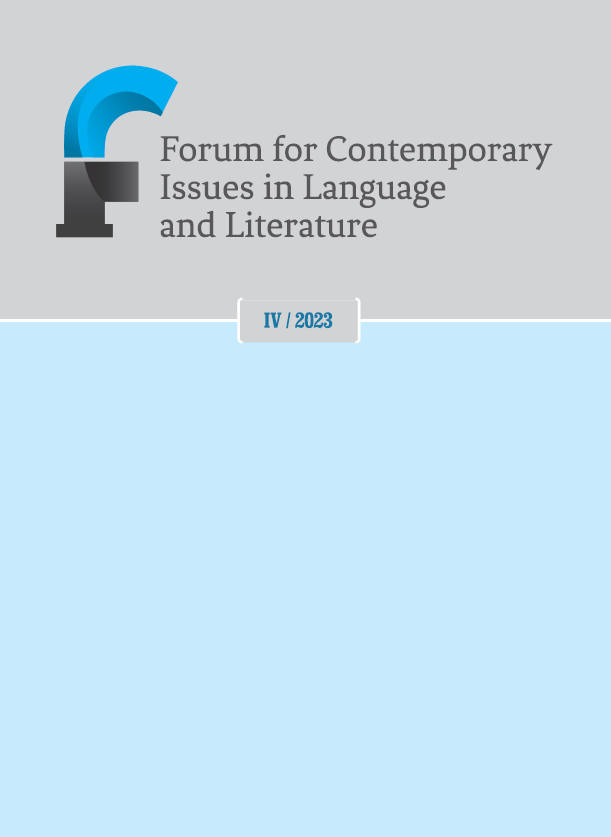THE QUEST FOR MENTAL TRANQUILITY IN JOSEPH CONRAD’S "UNDER WESTERN EYES"
DOI:
https://doi.org/10.34739/fci.2023.04.01Keywords:
Joseph Conrad, Under Western Eyes, psychological journey, confession, nationalismAbstract
In Joseph Conrad’s novel Under Western Eyes (1911), Razumov is a kinless university student in St. Petersburg who involuntarily becomes the government’s agent as regard to espionage because of an unwelcome visit from the revolutionist student Haldin. This paper makes use of C.T. Watts’ article “Under Western Eyes: The Haunted Haunts” published in 2008 as a framework to investigate Razumov’s psychological journey: beginning with his decision to betray Haldin through to the consequential action of making a confession to the latter’s sister, Nathalie. Watts’ article explores both the haunting and exorcist aspects of the novel upon its author, characters and, possibly. the reader. The article primarily focuses on how Conrad’s novel intentionally mimics Crime and Punishment (1866). Several aspects of the narrative reveal to us that Conrad failed in avenging the haunting effect Fyodor Dostoyevsky’s work had upon him. In this paper, the rationale behind Razumov’s confession will be investigated in understanding how both physical and mental exhaustion stimulate moral struggles and alter one’s assumed ideology. Emphasis will be made on the transformation of Razumov in terms of the effect of acquiring domestic connections and arriving in different geographical locations as the plot complicates.
Downloads
Downloads
Published
Versions
- 18.03.2024 (3)
- 04.03.2024 (2)
- 06.11.2023 (1)
Issue
Section
License
Copyright (c) 2023 Forum for Contemporary Issues in Language and Literature and Authors

This work is licensed under a Creative Commons Attribution-NonCommercial-NoDerivatives 4.0 International License.




